Recent Issues with ELDs in the US
E-loggers vs Fourth Amendment
Last year, the Owner-Operator Independent Drivers Association (OOIDA) unsuccessfully challenged the Federal Motor Carrier Safety Administration in a case against the electronic logging device (ELD) mandate final rule. The Association argued that the mandate is arbitrary, does not advance safety, and violates the Fourth Amendment. Earlier this April, the Association filed a Petition requesting that the Supreme Court review last year’s ruling.
OOIDA’s main argument against ELDs is that 24/7 monitoring of truck drivers via the electronic logs constitutes a form of surveillance. According to the Association, in most cases, search & seizure is done for law enforcement purposes and requires a warrant, signed by a judge, based on the suspicion that laws are being broken. The OOIDA believes that this process would require administrative searches and not searches for law enforcement purposes, which would clearly require individual search warrants.
The OOIDA also states that the mandate fails to comply with a statute requiring ELDs to accurately and automatically record changes in drivers’ duty status. ELDs can only track vehicle movement and must rely on drivers to manually input changes in the duty status. This makes the devices no better than paper logbooks as the process, and the dependence on the driver’s input are the same.
Vendor & Device Certification
The issue with the vendors’ self-certification process still remains gloomy. The FMCSA stated that it would not review devices for compliance but instead would leave the process to vendors. The government’s role is to issue recalls if problems are discovered later. There won’t be regular audits of vendors, however.
Numerous questions have been raised regarding the technical specifications of the ELDs and their features to serve the monitoring needs. The Agency has taken the initiative to organize a public meeting to help manufacturers produce devices that will comply with the regulation. The meeting will answer questions from ELD manufacturers and will review the standardized output and data sets.
Vulnerability of the Marketplace
The slow procedures for verification and addition of electronic devices have created anxiety in the industry. Truckers and business owners worry that the process may lead to lower trucking capacity. The mandate requires all trucks, manufactured after the year 2000, to have ELDs installed. Yet, it will take a substantial amount of time until this happens for all vehicles. Hence, the carriers that still lack ELDs will find it increasingly difficult to maintain ongoing relationships with shippers.
The smallest fleets will be the ones that add ELDs last, so it is very likely that some may go out of business before they are able to comply with the regulation. This will decrease capacity in the industry. This is a problem exactly because of the constantly increasing demand during the past years.
The introduction of ELDs also puts pressure on shippers and receivers in the supply chain. With the strict tracking of hours of service, truckers will no longer be able to make up for delays in the chain. The electronic device will become a bargaining tool for waiting time.
It is becoming a standard practice for some companies to not pay compensation for waiting times and the ELD will indeed be a valid helper in fighting this back. Yet, this will require certain adjustments from both shippers and receivers, who will be pressured to upgrade their own systems and optimize processes.
While ELDs are raising the game for everyone, they will bring times of tension, both financial and operational, to all parties involved.
A Quick glance at Europe
Digital electronic logbooks have been in use in Europe for more than a decade now. Some say they have helped stabilize the trucking industry and grow the economy of the European Union. So if they managed to succeed with ELDs there, why can’t the US do it? Has Europe mastered the implementation and usage of e-logging devices? Really… What do they do?
The Tachograph
The trucking industry uses devices called tachographs, which automatically record a vehicle’s speed and total distance traveled. The EU Commission introduced the mandatory use of tachographs in 2006. Yet, the industry has known the analog version of the devices since 1985. It was then when the legal framework for tachograph usage was initially set. Since then the laws regarding tachographs undergo changes only in regard to technological advancements. This adds up to over 30 years of usage and experience with the devices. In this time, the European Union has managed to set some basic rules that guide the usage of ELDs and their functionalities.

Tachograph Cards
It is a legal requirement for digital tachograph-equipped vehicles driven in the scope of EU rules that the driver must use a Driver card. If a driver operates a vehicle without inserting a card, a device will take note of that. The system will not prevent the vehicle from being driven, but it will record the fact that the vehicle has been used without a card. Each driver uses one personal driver’s card to ensure his own and the truckload’s security.
In addition to the driver’s card, there are three other types of cards that the devices recognize.
- Company cards allow road operators to perform mandatory and periodic memory back-ups. This allows for the protection and storage of the company archives and analysis.
- Workshop cards allow activation and collaboration of a VU by workshop staff. They allow for the calibration of the tachograph itself.
- Control cards allow road police to access the VU memory and download it for further analysis. This allows for proper inspection of the driver and company compliance with EU legislation.
The different types of cards help the establishment of better control and monitoring procedures. Yet, the more technical aspects there are in a system, the less secure it becomes.
Smart Tachographs
In 2011, the EU Commission proposed the revision of the regulations on tachograph usage in order to comply with the constant updates in technology. The replacement of current devices with smart tachographs is still taking place.
Officials see the smart tachograph as “a significant step towards introducing an intelligent, integrated onboard unit on trucks that will contribute to improving the efficiency of the EU transport system.”
The smart tachographs introduce novelties to the industries including remote communication and location recording based on satellite positioning. Moreover, they will help to merge the driver’s tachograph card with the driver’s license. This will reduce the administrative burden on drivers by €100 million per year. It will also reduce the fraudulent use of driver cards, which today are too easily handed over to other drivers.
Yet, this would not be possible if drivers reacted negatively to the adoption of the smart tachographs. The advancement in technology does not reduce drivers’ resistance to the new systems.
Many of the drivers in the EU find it hard to operate digital systems. Some see the changes in the industry through a rather dark lens. They feel like trucks are turning into giant screens which change the essence of their job – from driving a truck to operating a computer.
Still… It ain’t Perfect
Despite their long experience with monitoring devices, Europeans still face tachograph frauds. From both companies and drivers. The two examples below are just a minor fraction of the resistance e-loggers are still facing in Europe.
Hours of Service
Electronic devices should help proper tracking of drivers’ working time. And they technically do. But it seems like there are ways to get around this too.
One such practice is to disregard time outside the truck. When an activity takes place away from the vehicle where the recording equipment can’t operate, drivers should keep a record on an analog record sheet or manually input the activity in the digital tachograph.
Yet, many trucking companies in Europe instruct the drivers not to register loading/unloading as ‘other work’ time. So, this is automatically counted as break or rest time and therefore, not reflected in the wage. This practice is in breach of European laws on working time for professional drivers, yet, it remains unnoticed.
Safety & Security
Drivers purposely manipulate tachographs, too. Some of them put a magnet on the truck’s gearbox. That is a deliberate and deceptive action, which interferes with the recording process of the device, to falsify driving records.
The bigger issue is that this also affects other important vehicle systems. It disables the speed limiter, the speedometer, and the gearbox management system. Basically, the truck “believes” it is stationary while it is actually being driven. This could cause enormous damage to the vehicle and to the driver’s own safety.
Conclusion
You can see that even with 30 years of experience in monitoring drivers’ behavior the European system is still far from perfect. And this will always be the case as long as people are the main actors in the process.
The policies regarding the tachographs might change significantly in the next years due to the political instability of the European Union. For one thing, Brexit may seriously disturb the trucking activities over the entire continent. The political situation is a huge factor in the vulnerability of the marketplace. And smart tachographs or any procedure behind them will probably not be the best solution to the issue.



